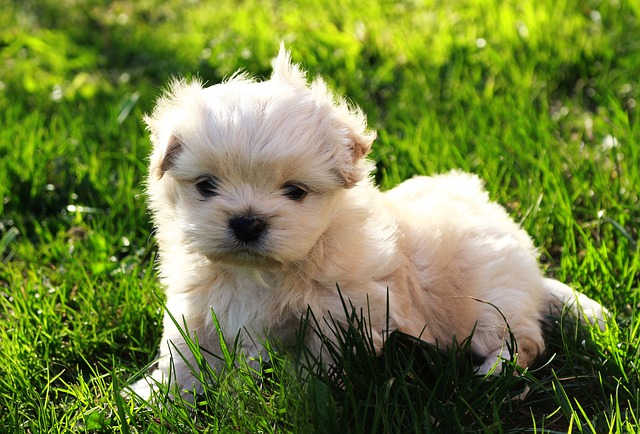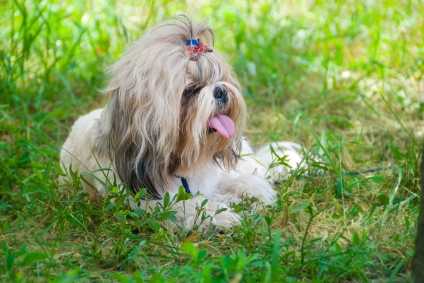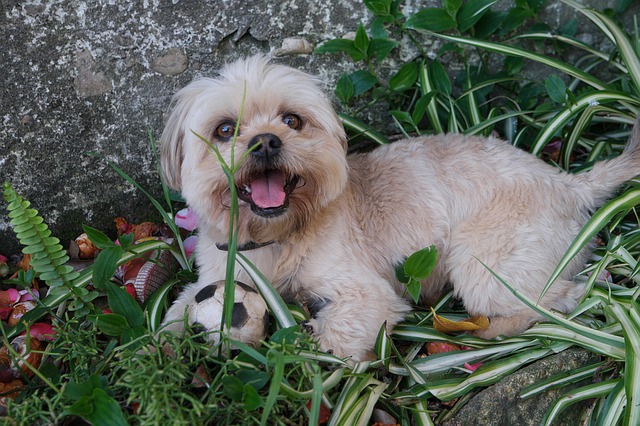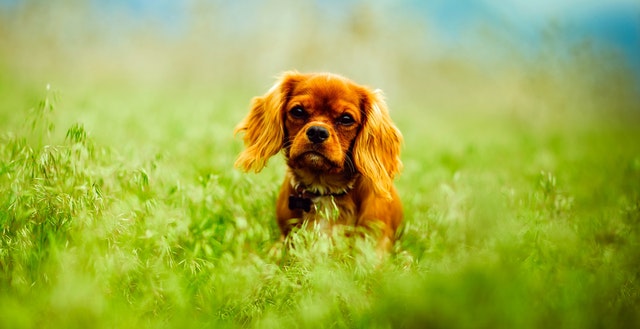Uncover The Mystery: Why Do Dogs Have a Secret Love Affair with Grass?
BY MOLLY | EVERYTHINGSHIHTZU.COM | updated June25, 2023
This post may contain affiliate links. Read privacy & disclosure policy for info
In the world of dogs, there's a puzzling behavior that has left pet owners scratching their heads: the insatiable appetite for grass.

You may have witnessed it firsthand, your furry companion gleefully chomping on blades of grass, as if they've stumbled upon a hidden delicacy.
But why do dogs, who have an abundance of meals at their disposal, feel the irresistible urge to snack on nature's turf?
It's time to unravel the mysteries behind this peculiar behavior and shed light on the possible reasons that drive our canine friends to become lawn munchers.
So Why Do Dogs Eat Grass?
The exact reasons why dogs eat grass are not entirely clear, but one suggestion is of a mental behavior known medically as pica.
This is the term that refers to the constant consumption of materials with no nutritional value.
It is rare for humans to display signs of pica, but pica is more common in wild and domestic animals, like dogs.
Many people believe dogs will eat grass if they are feeling ill or if they have intestinal worms.
Some also believe this behavior is an attempt to improve digestion.
The belief that dogs eat grass if they are ill presumes that they do this to induce vomiting to purge whatever is ailing them.
However, there is no conclusive evidence of a correlation between dogs eating grass and vomiting.
Nor do results show a correlation between grass-eating and worms or indigestion.

Most of the time, dogs do not vomit after eating grass.
If they do, it is not uncommon for them to go right back to it. This is true for eating grass or any other activity.
Dogs do not vomit like humans do.
When we get nauseous, it usually a sign of illness, but dogs can vomit from something as simple as eating too fast or getting too excited after eating.
Recall your dog’s behavior before eating grass and pay attention afterward. Was, or, is he displaying any signs of illness?
Look For Signs That Your Dog May Be Ill
Signs of illness to look for in your dog do not include eating grass, but instead includes the following:
- Frequent vomiting and nausea
- Diarrhea
- Coughing
- Hair loss -- not the same as shedding, but is irregular hair loss from skin infections
- Frequent scratching
- Loss of appetite -- eating grass is the opposite of this!
- Slothfulness
- Irregular urination patterns -- urinating too much or too little can be symptoms of illness
- Stiff joints and immobility
If your dog is eating grass, but not exhibiting any of the symptoms mentioned on this list, then he is probably feeling fine!
If your dog does show signs of anything on this list, then you should take him to the vet, regardless of whether or not he is eating grass.
If not because of illness, then why do dogs eat grass?
It is good news that eating grass is not a sign of sickness, or my dog must be very sick!
Since pica is not a sign of illness, let’s take a look at why veterinary experts think dogs eat grass:

- Dogs may eat grass because they are bored
Simple as that. Your dog may be eating grass for the same reason that he chews a sock or gnaws on a bone.
This is especially true for puppies who are still exploring their surroundings and getting into everything.
Try giving your pet a chewing toy or bone. Maybe he needs to play more!
Giving dogs some attention and excitement will help alleviate their boredom.
- Your dog may be lacking something in his diet.
Your dog’s food may not be packed with all of the nutrients he needs.
Some owners find that switching to foods with higher amounts of fiber keeps dogs from wanting to eat grass or other objects.
- Your dog simply likes it!
Just as humans enjoy certain foods for texture, it is possible that your dog likes grass for the same reason.
Are There Harmful Side-effects to Eating Grass?
Dogs are quite capable of digesting both plant and animal matter.
While dogs usually prefer eating meat or dog food, they sometimes enjoy plant foods as well.
In principle, eating grass is not harmful to your dog.
But, if your lawn is treated with fertilizers and chemicals, eating it can be harmful.
If you know your lawn is absent of these toxins, then your dog will be fine!
If your lawn is treated with chemicals, or if you are not sure, then you should keep your dog from eating grass.
The same goes for grass in unknown areas while walking your dog or traveling.
As mentioned before, you can discourage this behavior by playing with them more and giving them something else to chew on.
Your dog may even enjoy another similarly textured plant like celery!
Final thoughts on why dogs eat grass

Determining why dogs like to eat grass is difficult since they can’t tell us right out.
Veterinary studies have put forth some suggestions, but nothing is conclusive yet.
Eating grass is a normal behavior for dogs.
This behavior is not shown to be a sign of illness, worms, indigestion, or whatever bad thought we can imagine.
You should not worry about your dog eating grass unless the grass is fertilized or chemically treated.
There is no evidence that eating grass is usually anything more than a behavioral concern.
So, if fertilizer and toxic chemicals are not a problem, then let your dog be a dog and enjoy some harmless grazing!
But if you don't know for sure if there are toxins on grass you should, try to discourage your dog from consuming it.
If you believe your dog likes the taste of grass, try giving him fresh vegetables like carrots or celery as an alternative.
Or grow a patch of chemical free grass in a container and let him graze on that every once in a while.
- Home
- Shih Tzu Information
- grass eater



